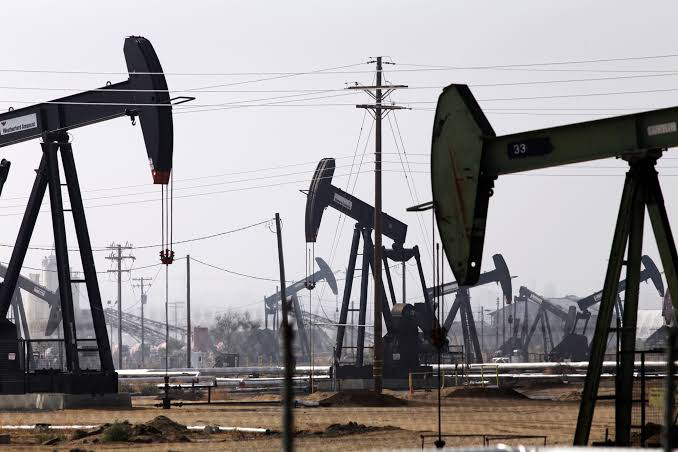KEY POINTS
- Oil prices jumped 2% after Chevron’s exit raised supply concerns.
- OPEC+ is debating whether to freeze or increase oil production.
- U.S. economic slowdown and rising unemployment add market uncertainty.
After U.S. President Donald Trump canceled a license granted to U.S. oil firm Chevron to operate in Venezuela, supply fears reappeared, causing oil prices to rise more than 2% on Thursday.
Chevron’s Venezuela exit fuels fresh oil supply concerns
Signs of a possible peace agreement in Ukraine, which would lead to increased Russian oil flows, were still being watched by investors.
At $74.04 a barrel, Brent crude oil futures ended the day up $1.51, or 2.1%. Crude oil futures for the U.S. West Texas Intermediate increased by $1.73, or 2.5%, to $70.35. T
According to Reuters, clarity is preferred by markets over uncertainty. According to Tamas Varga, an analyst at PVM, “oil prices will continue to be defensive with sporadic and spontaneous headline-based rallies unless a clear path on tariffs and Eastern European peace is presented.”
From its activities in Venezuela, Chevron exports over 240,000 barrels of crude oil per day, which accounts for more than 25% of the nation’s total oil production.
“If Chevron leaves, Venezuela’s oil production may decline, allowing OPEC+ to boost output. “Coastal U.S. refiners may have to pay more for procurements if this happens,” TD Cowen analysts wrote in a report.
Global sanctions and geopolitical tensions impact oil prices
According to the analysts, heavy sour crude prices could rise if OPEC+ does not boost supply, which would affect refiners in the United States. As its members struggle to assess the global supply outlook due to fresh U.S. sanctions on Venezuela, Iran, and Russia, OPEC+ is considering whether to freeze or increase oil output in April as planned, according to eight OPEC+ sources cited by Reuters. This information caused oil prices to rise during intraday trading.
“It is my opinion that with Brent crude oil still hovering around $75 per barrel, OPEC+ will delay the restoration of the voluntary production cuts at least through the end of April and possibly through the end of the second quarter,” stated Andrew Lipow, president of Lipow Oil Associates.
Trump’s role in attempts to broker a peace agreement between Russia and Ukraine is also under scrutiny.
Trump said that Ukrainian President Volodymyr Zelenskyy would travel to Washington on Friday to sign a rare earth minerals agreement, but Zelenskyy stated that the discussions’ success would depend on ongoing U.S. assistance.
The government reported Thursday that U.S. economic growth slowed in the fourth quarter, and the slowdown seems to have continued early this quarter due to cold weather and worries that tariffs may affect consumption by raising costs.



